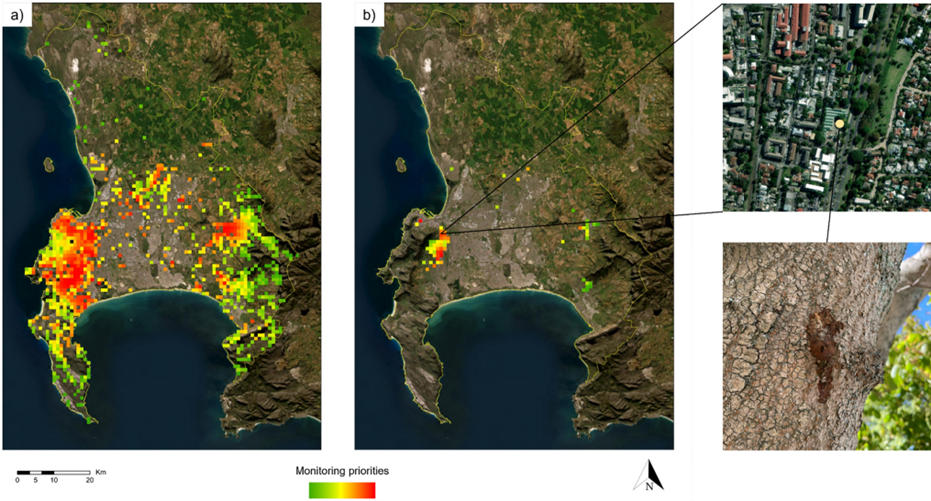New scheme to improve our understanding and management of dispersal
CIB reseachers develop new scheme to improve our understanding and management of dispersal.
CIB reseachers develop new scheme to improve our understanding and management of dispersal.
CIB study discusses the use of safe lists in the management of biological invasions.

CIB researchers develop an innovative protocol to map priority areas for detecting new and expanding polyphagous shot hole borer (PSHB) infestations in urban areas.
Do controversies divide the field of invasion science? A new study finds that consensus among invasion science experts is generally high, however, some topics still generate debate.
The potential economic impact of the polyphagous shot hole borer in South Africa amounts to R275 billion over the next ten years if nothing is done to stem the tide. This estimate is the result of a study conducted by economists and ecologists at the Stellenbosch University (SU) and the University of Pretoria (UP).